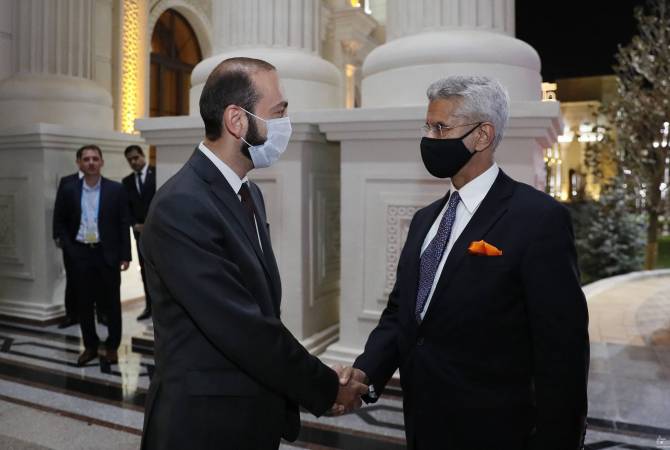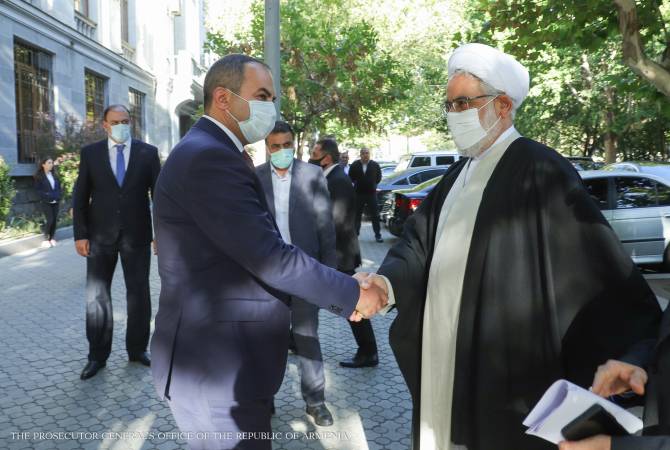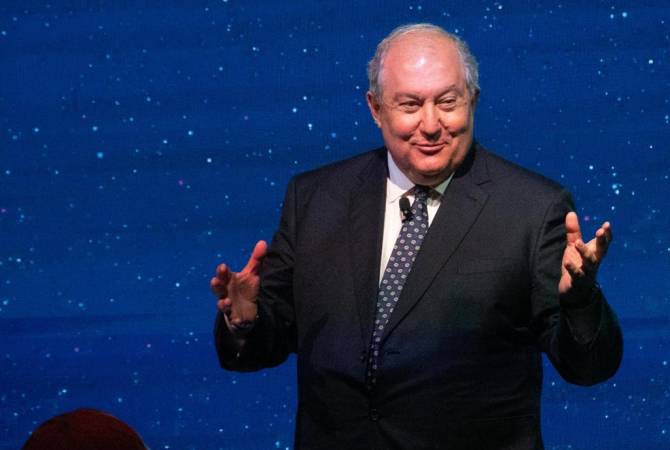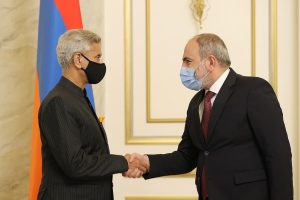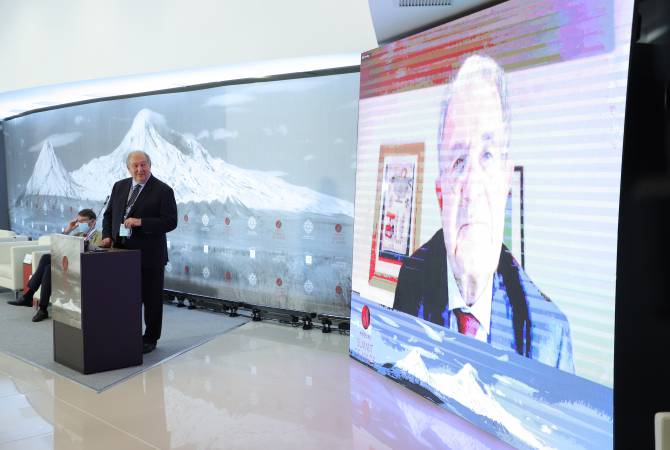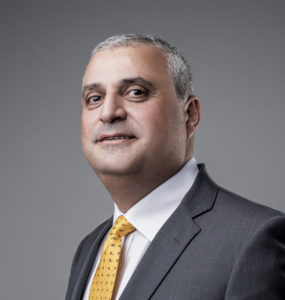Pope Francis meets with Catholicos Karekin II, the leader of the Armenian Apostolic Church, on Oct. 16, 2021. (photo: Vatican Media. / Vatican Media)
VATICAN CITY — The signing of a memorandum of understanding on cultural cooperation between Armenia and the Holy See on Oct. 11 was the culmination of a week in which contacts between the world’s oldest Christian nation and the Vatican intensified both on a religious and pastoral level.
The signing of the memorandum occurred during the Armenian President Armen Sarkissian’s visit to the Vatican, which included a meeting with Pope Francis and a bilateral meeting with the Vatican Secretariat of State.
Armenian religious leaders also took part in meetings at the Vatican. Catholicos Karekin II, head of the Armenian Apostolic Church (Armenia’s national church), had an audience on Oct. 16 with Pope Francis, who visited Armenia in 2016.
The Catholicos brought with him Arman Tatoyan, the Human Rights Defender of Armenia and author of reports denouncing the loss of Christian heritage in Nagorno-Karabakh.
Nagorno-Karabakh is an enclave within Azerbaijan with an Armenian majority that asserted its independence with the dissolution of the Soviet Union. The First Nagorno-Karabakh War, waged from 1988 to 1994, claimed an estimated 20,000 lives.
The territory, known as Artsakh in Armenian, was at the center of a 40-day conflict last year that led to a painful ceasefire agreement for Armenia. As a result, several Armenian monasteries found themselves isolated.
Armenian scholars have denounced what they describe as a “cultural genocide” in the region, highlighting what they say is a decades-long, systematic campaign of destruction of Christian heritage.
Azerbaijan, meanwhile, insists that the region belonged to the ancient state of Caucasian Albania before it became Armenian. Officials also point to the destruction of Islamic buildings during recent conflicts.
The Vatican’s “Armenian week” focused on both the protection of Christian heritage and the fate of prisoners of war, which remains uncertain.
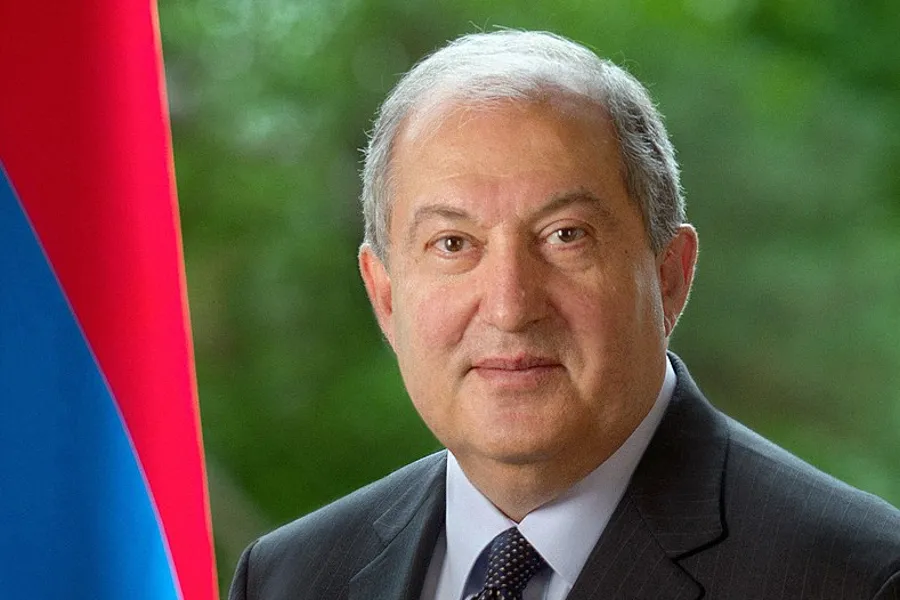
Armenian President Armen Sarkissian. Press Service of the President of the Republic of Armenia via Wikimedia (CC BY-SA 3.0).
An agreement signed by President Sarkissian with the Pontifical Council for Culture is part of an important diplomatic effort.
For Sarkissian, relations between Armenia and the Holy See are “good, but they could be better.” By “better,” he means that there could be a joint cultural commitment, perhaps with exchanges of artworks between the Vatican Museums and Armenian institutions.
Speaking to a small group of reporters on Oct. 12, Sarkissian noted that Armenia and the Vatican are both “small states with a large nation.”
The nation of Armenia, the first to proclaim itself Christian in 301 AD, has links all over the world due to a diaspora driven by the genocide of 1915 (still not recognized as such by countries including Turkey). The Medz Yeghern (“Great Evil Crime”), as it is known in Armenia, remains an open wound.
The “nation” of the Vatican comprises Catholics worldwide. And the Armenian president, a physicist by training and coiner of the concept of “quantum politics,” thinks precisely in terms of cooperation between small states placed on the sidelines of history.
The president developed these themes in his meeting with Pope Francis, and later with the Vatican Secretary of State Cardinal Piero Parolin and “foreign minister” Archbishop Paul Gallagher.
In addition to the threat to Christian heritage, there is also concern for Armenian soldiers who remain prisoners of war in Azerbaijani prisons.
“We don’t even have the numbers of how many are imprisoned, and we can’t even see the faces of the prisoners,” Sarkissian said.
The president did not divulge the details of his conversation with the pope, which remains confidential. But he underlined that the Holy See, and in particular Pope Francis, has a soft power that should not be underestimated.
The president said that the memorandum of understanding would “allow joint research to be carried out on issues of historical interest.”
“We hope it will contribute to further intensifying cooperation between Armenia and the Holy See in the fields of culture, science, archeology, and other sectors, as well as the partnership between the Armenian Apostolic Church and the Catholic Church of Rome,” he commented.
In his meeting with Pope Francis, Karekin II touched on similar topics.
The head of the Church to which around 92% of Armenia’s three million-strong population belong told CNA that the recent conflict saw “military attacks, but also attacks that targeted civilians, using modern and prohibited weapons.”
The Mother See of Holy Etchmiadzin — the Armenian Apostolic Church’s equivalent of the Vatican — recently created a department to ensure the preservation of Christian heritage.
"With this office, we want to disseminate information with the international public and ensure that these things no longer happen,” said Karekin II.
“But we also want to disprove some of the Azerbaijani narratives, which argue that those churches belong to the region’s Albanian-Caucasian heritage.”
The conflict in Nagorno-Karabakh has thus moved from a military to a more cultural level. This is demonstrated by the Armenian authorities’ commitment to the issue.
In September, Armenia made a formal complaint against Azerbaijan at the International Court of Justice in The Hague. In addition, Tatoyan has written a report highlighting the situation of prisoners of war, which he personally presented to the pope last week.
It is no coincidence that Karekin II brought Tatoyan with him. His presence served to give depth and substance to the Armenian denunciations. At the same time, the president’s visit was aimed at raising diplomatic relations to a yet higher level.
https://www.ncregist...on-in-the-world







